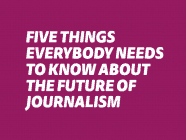The recent issue of New Eastern Europe, a news journal with the focus on Central and Eastern European affairs, has a special section on Digital Eastern Europe. In it, the group of authors look at the internet and surrounding technologies in the context of democratization of Eastern European societies.
Interestingly, countries with the highest internet penetration – Russia, Azerbaijan, Kazakhstan, and Belarus – are also the most authoritarian. While those with much fewer internet users – Georgia, Moldova, and Ukraine – score better in terms of democratic freedoms.
Digital Eastern Europe tries to explain whether new media technologies will accelerate and deepen the process of democratization in post-Soviet block, or be used for more surveillance, censorship, and propaganda.
Natalya Ryabinska’s article ‘New media and democracy in post-Soviet countries’ looks at how the internet has affected politics and society in particular countries during a particular period of time.
Former Soviet states have relatively high rates of internet penetration, similar to countries like France or Spain, but overall there are still pronounced inequalities in access. People living in smaller places are much less likely to be online than those living in large cities. Moreover, in some places, like Azerbaijan for example, the connection speed remains low, while in others, like Uzbekistan, its price is still beyond the reach for large parts of population.
Many of non-Baltic post-Soviet countries still have mass media that is subject, in varying degrees, to state control. Under these conditions the internet is an important resource for independent traditional media as well as for citizen initiatives within the blogosphere or social networks. Yet, the size of the online-audience is still considerably smaller than that of the traditional offline mass media.
Internet-based media can be vital in politically critical moments like elections or widespread public protests but their impact can be limited. In Russia, for example, the traditional news media still fail to adequately report on violations of voting procedure or citizen demonstrations against the government. Online news outlets are often the only sources of information in these situations. Opinion surveys, however, indicate that they are still less popular and less trusted by the general population. In addition, the studies show that even though people use internet sources, they continue to watch and trust government-controlled TV channels.
Unfortunately, being a part of dissident information environment online, Ryabinska argues, does not always translate into real-life political action and change. She refers to ‘slactivism’, the term coined by information technology scholar Evgeny Morozov. The young and educated will ‘post’, ‘like’, and ‘tweet’ politically oppositional content but abstain from participating in a real-life protest. One reason for this passivity is the limited appeal opposition movements and parties have to Russian ‘netizens’. Another is the risk related to participation in street protests.
The theory of the possibilities of the internet is filled with rhetoric of freedom of communication and expression, but in practice there are several political limitations. The article quotes the 2012 Freedom House report which classified only Georgia and Ukraine as having a free internet, while Kyrgyzstan, Kazakhstan, Russia, and Azerbaijan were rated as only ‘partly free’, and Belarus and Uzbekistan as ‘not free’. Governments use numerous tools to suppress internet freedom: legal restrictions of freedom, blacklists, content blockage or removal, ownership control, violence against internet activists, and even government-initiated cyber-attacks against oppositional media.
The internet activities of the authorities are not limited to counteraction. They are actively involved in online surveillance of their citizens and dissemination of propaganda. In Russia, the interception of data traffic without a warrant by government services has been legal since 2007. Pro-government organizations have a strong online presence. Paid bloggers are hired to write favourable commentary and discredit the opposition.
The author concludes that internet technologies alone are not enough to bring about democratic change in the former Soviet states. These countries still have weak civil societies and internet activism cannot grow in a vacuum. The determination of the governments to foster public political expression and participation remains the key factor of democratization.
Photo credit: Screenshot of the New Eastern Europe magazine
Further articles published in special section:
Toys for the Super-Rich by Mykola Kniazhytsky
Tales from the (Ru)Net by Sergey Utkin
The End of Journalists by Eryk Mistewicz
Ukraine’s Parallel Realities by Igor Lyubashenko
Tags: Democracy, digital democracy, Digital Media, Eastern Europe, Internet, post-communist Eastern Europe, post-soviet countries














































